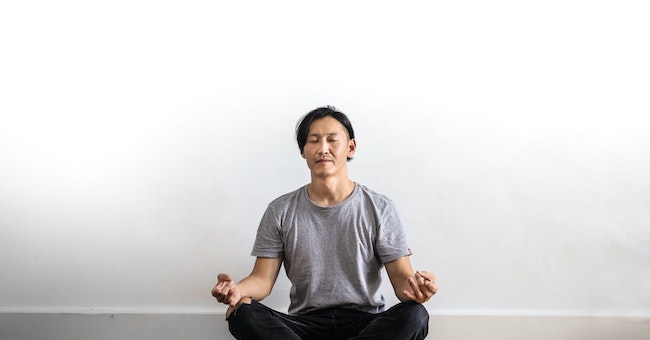Exploring the Depths of Inner Peace: Meditation and Its Transformative Methods

Introduction
In today's fast-paced world, finding a sense of inner peace and tranquility can often feel like a distant dream. Amidst the chaos of daily life, many individuals are turning to meditation as a powerful tool to cultivate a calm and centered mind. Meditation, an ancient practice with roots in various cultures, has gained widespread popularity due to its profound impact on mental, emotional, and even physical well-being. In this exploration, we delve into the world of meditation, understanding its essence, and uncovering some of the most transformative meditation methods.
The Essence of Meditation
At its core, meditation is a practice that involves training the mind to achieve a state of mental clarity, emotional balance, and heightened awareness. It allows individuals to connect with their inner selves, fostering self-awareness and self-acceptance. Meditation is not about escaping reality; rather, it is about embracing the present moment and finding serenity amidst the fluctuations of life.
Methods of Meditation
Mindfulness Meditation: One of the most popular and accessible forms of meditation is mindfulness meditation. Originating from Buddhist traditions, mindfulness involves paying non-judgmental attention to the present moment. Practitioners learn to observe their thoughts, emotions, and sensations without attachment, promoting a sense of detachment and inner calm. This method is often practiced through focused breathing, body scans, and cultivating awareness of daily activities.
Transcendental Meditation: Developed in the 1950s, Transcendental Meditation (TM) is a technique that involves silently repeating a specific mantra to quiet the mind and reach a state of transcendence. TM practitioners report improved clarity, reduced stress, and increased creativity. This structured approach makes it appealing to those seeking a systematic way to meditate.
Loving-Kindness Meditation: Also known as Metta meditation, this practice emphasizes cultivating feelings of compassion and love towards oneself and others. Practitioners mentally repeat positive affirmations and extend well-wishes to themselves, loved ones, acquaintances, and even those they might have conflicts with. This meditation method helps foster empathy and dissolve negative emotions.
Zen Meditation (Zazen): Rooted in Zen Buddhism, Zazen meditation centers around seated meditation and mindfulness. Practitioners focus on their breath and observe thoughts and sensations without attachment. The aim is to experience direct insight and a deep understanding of one's true nature.
Guided Meditation: Perfect for beginners, guided meditation involves listening to a trained instructor or a recorded session. This method often takes participants through a mental journey, helping them visualize peaceful landscapes, affirmations, or even chakra alignment. Guided meditation is a great way to explore different meditation styles and gradually build a personal practice.
Benefits of Meditation
The benefits of meditation are as diverse as the methods themselves, with extensive scientific research supporting its positive impact on overall well-being. Some of the notable benefits include:
Stress Reduction: Meditation has been shown to reduce the production of stress hormones, leading to decreased anxiety and an enhanced ability to cope with stressors.
Improved Focus and Concentration: Regular meditation enhances cognitive functions, increasing attention span and the ability to concentrate on tasks.
Emotional Regulation: Meditation helps individuals develop emotional intelligence, leading to better control over reactive emotions and a greater sense of equanimity.
Enhanced Physical Health: Meditation can lower blood pressure, improve cardiovascular health, and boost the immune system, promoting holistic well-being.
Increased Self-Awareness: Through self-reflection and introspection, meditation fosters a deeper understanding of one's thoughts, behaviors, and patterns.
Better Sleep: Mindfulness meditation, in particular, can alleviate insomnia by calming the mind and promoting relaxation.
Incorporating Meditation into Daily Life
While the benefits of meditation are clear, establishing a consistent practice can be challenging. Here are some tips for incorporating meditation into your daily routine:
Start Small: Begin with just a few minutes of meditation each day and gradually increase the duration as you become more comfortable.
Consistency: Choose a specific time and place for meditation to create a routine that becomes a habit.
Create a Peaceful Space: Find a quiet, clutter-free space where you can meditate without distractions.
Use Resources: Utilize guided meditation apps, online videos, or meditation classes to learn different techniques and stay motivated.
Patience: Be patient with yourself. Meditation is a skill that takes time to develop, and it's okay to have wandering thoughts during your practice.
Recommended Online Resources for Meditation
Learn Meditation - Theory & Practice
Acquire Essential Skills: Immerse yourself in this comprehensive meditation course, equipping you with theory and practical techniques for improved health, energy, efficiency, and success. Guided by a seasoned instructor with 35 years of meditation practice and 15 years of teaching experience, you'll witness transformative results from day one.
Course highlights:
Practical Meditation Skills: Achieve health, energy, efficiency, and success.
Expert Guidance: Instructor with 35 years of meditation practice.
Professional Growth: Master meditation's fundamentals for personal and career enhancement.
Comprehensive Understanding: Expert-designed course with 15 years of teaching experience.
Prep for Further Education: Start witnessing improved well-being and efficiency.
This course empowers beginners with foundational meditation skills. Learn the basics, walk in a meditative state, and establish daily practice. Uncover meditation's benefits: enhanced focus, relationships, health, happiness, productivity, and career growth.
Professional Enhancement: Elevate your career with meditation's core principles. Control your mind and emotions, boosting productivity and success. Reduce stress, amplify focus, and nurture happiness.
Prepare for Advanced Study: Lay the groundwork for further meditation education. Understand meditation's power, focus techniques, and daily routines.
Course highlights:
Begin Meditation: Basics, walking meditation, daily practice foundation.
Benefits Unveiled: Improved focus, relationships, health, happiness, productivity, career.
Professional Edge: Control emotions, enhance productivity, stress reduction for success.
Holistic Growth: Relationships, health, happiness, productivity, career gains through meditation.
Foundation for Advancement: Prepares for further education in meditation.
5-Minute Meditation You Can Do Anywhere
Immerse yourself in this brief, transformative 5-minute meditation journey. At 0:23, find comfort in your posture. At 0:32, dive into mindful breathing. At 1:14, release bodily tension. At 2:10, draw in tranquility from head to toe. At 2:54, center your focus. Conclude at 4:47 by opening your eyes, rejuvenated and centered. This meditation offers a quick reset, infusing your day with positivity.
Course highlights:
Quick Day Reset: 5-minute meditation for positive vibes.
Comfortable Posture: Begin by settling into a cozy position.
Mindful Breathing: Focus on breath, ease your mind.
Release Tension: Identify and release bodily tightness.
Rejuvenating Finish: Open your eyes, revitalized and centered.
FAQs about Meditation
Q: How do I start meditating?
A: Find a quiet space, sit or lie down comfortably, close your eyes, and focus on your breath. Allow thoughts to come and go without judgment. Guided meditation apps and videos are also helpful for beginners.
Q: What are different meditation techniques?
A: There are various techniques, such as mindfulness (focused attention on the present moment), loving-kindness (cultivating compassion), transcendental (repeating a mantra), and body scan (awareness of bodily sensations).
Q: How long should I meditate?
A: Start with a few minutes daily and gradually increase as you become more comfortable. Even a short session, like 5-10 minutes, can offer benefits.
Q: Can I meditate anywhere?
A: Yes, you can meditate almost anywhere. Choose a quiet and comfortable spot, whether it's at home, in nature, or even during a break at work.
Q: Do I need any special equipment for meditation?
A: No special equipment is necessary. A quiet space and a comfortable place to sit or lie down are sufficient. Some people use cushions or chairs for added comfort.
Q: Can meditation be religious or spiritual?
A: Meditation has been practiced in various cultures, both religious and secular. It can have spiritual elements but can also be practiced in a purely secular and mindful context.
Q: Is meditation suitable for everyone?
A: Yes, meditation can be practiced by people of all ages and backgrounds. It's adaptable to individual preferences and needs.
Conclusion
Meditation is a journey of self-discovery and transformation that holds the potential to enhance every aspect of our lives. By embracing various meditation methods and committing to a regular practice, we can cultivate a sense of inner peace, resilience, and mindfulness. Whether seeking stress relief, emotional balance, or a deeper connection with oneself, meditation offers a path to a more conscious and fulfilling existence. As you embark on this journey, remember that each moment of stillness brings you closer to unlocking the boundless benefits that meditation has to offer.





